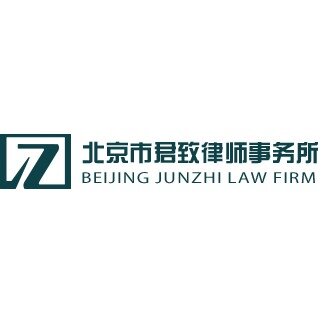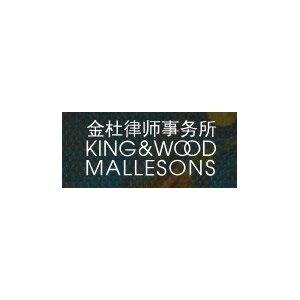Best Real Estate Due Diligence Lawyers in China
Share your needs with us, get contacted by law firms.
Free. Takes 2 min.
Free Guide to Hiring a Real Estate Lawyer
Or refine your search by selecting a city:
List of the best lawyers in China
About Real Estate Due Diligence Law in China
Real estate due diligence in China involves a thorough investigation of property assets, ensuring that their legal status is sound and that there are no hidden liabilities. This process is crucial for investors, developers, and buyers who need to evaluate potential risks associated with a property. Due diligence helps identify issues related to land use rights, ownership disputes, zoning laws, and compliance with local regulations. In China, the legal framework governing real estate transactions can be complex, often encompassing local, regional, and national regulatory requirements.
Why You May Need a Lawyer
Engaging a lawyer in real estate due diligence is advisable in several scenarios:
- Purchasing Property: When buying property, lawyers can help verify ownership, check for encumbrances, and ensure the transaction complies with Chinese laws.
- Investing in Real Estate: Investors need lawyers to navigate legal complexities, assess risks, and structure their investments properly.
- Developing Property: Developers benefit from legal advice to understand local zoning laws, obtain necessary permits, and negotiate contracts.
- Resolving Disputes: Legal assistance is critical when handling disputes over property boundaries, ownership, or other related issues.
- Understanding Regulations: A lawyer can clarify national and local regulations that impact real estate transactions and development.
Local Laws Overview
In China, real estate is governed by a mix of national and local laws. Key aspects include:
- Land Use Rights: Land ownership is primarily held by the state, with land use rights granted to individuals or entities after extensive checks for urban and rural land categories.
- Real Estate Registration: Detailed registration is required to establish and transfer property rights, ensuring public transparency and protection against fraud.
- Zoning Laws: Local governments establish zoning regulations that dictate property use, crucial for developers to understand before planning projects.
- Foreign Investment Policies: Non-Chinese investors must comply with specific regulations that often require navigating nuanced legal frameworks.
- Environmental Regulations: Development projects must consider environmental assessments and compliance, impacting project viability.
Frequently Asked Questions
1. What is real estate due diligence?
Real estate due diligence involves a comprehensive assessment of property assets to ensure they are legally sound, free of encumbrances, and compliant with applicable laws and regulations.
2. How long does the due diligence process take in China?
The duration varies depending on the property's complexity and specific issues, but typically it can range from a few weeks to several months.
3. Can foreigners buy property in China?
Yes, but there are restrictions. Foreign individuals and companies must comply with certain regulations, and the process is typically more complex than domestic purchases.
4. What documents are typically involved in real estate due diligence?
Key documents include property title certificates, land use rights certificates, zoning approvals, and environmental compliance certificates.
5. What are the risks of not conducting due diligence?
Failing to conduct proper due diligence can lead to legal disputes, financial losses, discovery of latent encumbrances, and regulatory non-compliance issues.
6. How can I verify property ownership?
Property ownership can be verified through official land registries and title deeds, often requiring professional legal assistance for authenticity checks.
7. Are there any taxes involved in real estate transactions?
Yes, real estate transactions in China are subject to various taxes, including value-added tax, deed tax, and sometimes capital gains tax.
8. How does zoning affect real estate development?
Zoning laws define the permissible use of land and can significantly impact development goals. Non-compliance with zoning regulations can lead to penalties and project halts.
9. What is the role of a notary public in real estate transactions?
Notaries in China play a crucial role in certifying documents, ensuring they are legitimate, and reducing the risk of fraud in real estate transactions.
10. What should I do if there is a dispute over real estate in China?
Engage a local lawyer specializing in real estate law to assist in resolving the dispute, whether through negotiation, mediation, or litigation.
Additional Resources
There are several resources available for those seeking further information or help:
- Ministry of Natural Resources of the People's Republic of China
- Local Land Bureau Offices
- China Real Estate Association
- Beijing Foreign-Related Land and Resources Bureau
Next Steps
If you require legal assistance in real estate due diligence in China, consider the following steps:
- Research and select qualified real estate lawyers with expertise in Chinese property law.
- Schedule consultations to discuss your specific needs and obtain tailored legal advice.
- Gather all necessary documents and information for a comprehensive analysis.
- Continuously communicate with your legal team for timely updates and guidance.
Engaging a professional can help mitigate risks and ensure a smooth real estate transaction process in China.
Lawzana helps you find the best lawyers and law firms in China through a curated and pre-screened list of qualified legal professionals. Our platform offers rankings and detailed profiles of attorneys and law firms, allowing you to compare based on practice areas, including Real Estate Due Diligence, experience, and client feedback.
Each profile includes a description of the firm's areas of practice, client reviews, team members and partners, year of establishment, spoken languages, office locations, contact information, social media presence, and any published articles or resources. Most firms on our platform speak English and are experienced in both local and international legal matters.
Get a quote from top-rated law firms in China — quickly, securely, and without unnecessary hassle.
Disclaimer:
The information provided on this page is for general informational purposes only and does not constitute legal advice. While we strive to ensure the accuracy and relevance of the content, legal information may change over time, and interpretations of the law can vary. You should always consult with a qualified legal professional for advice specific to your situation.
We disclaim all liability for actions taken or not taken based on the content of this page. If you believe any information is incorrect or outdated, please contact us, and we will review and update it where appropriate.
Browse real estate due diligence law firms by city in China
Refine your search by selecting a city.














